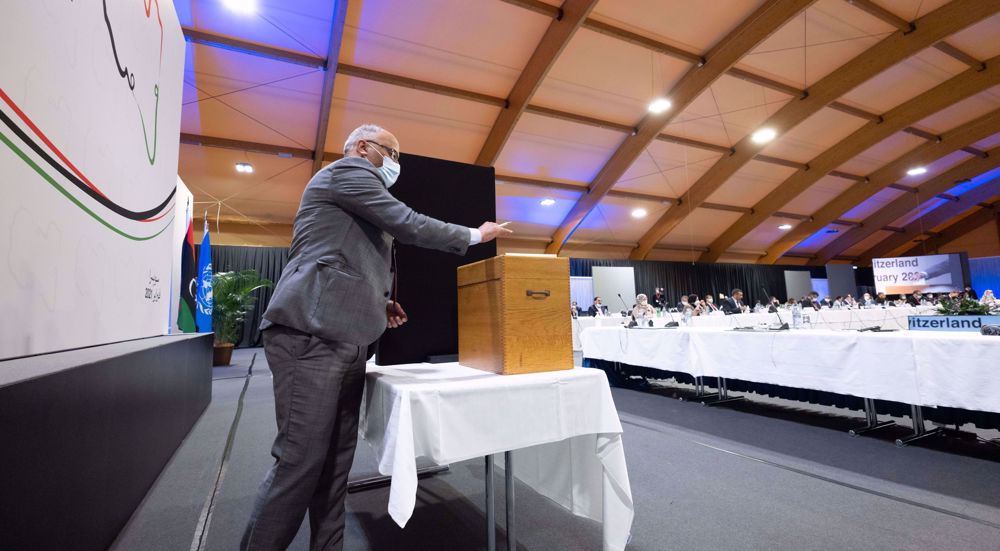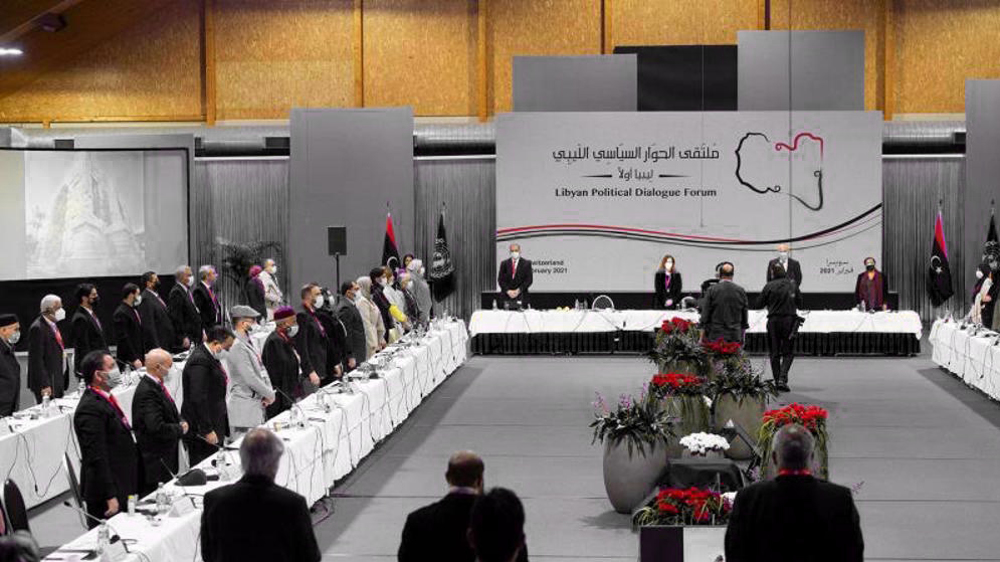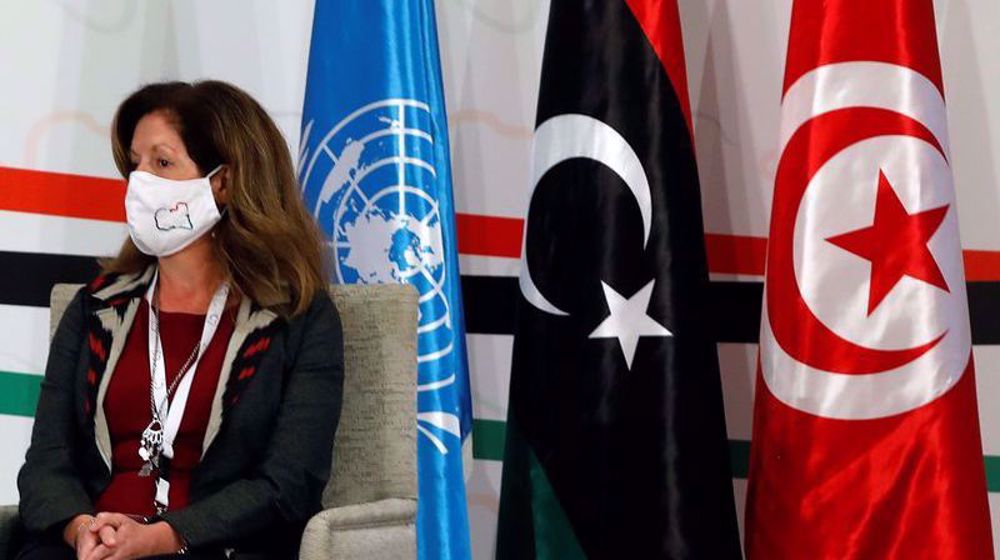New transitional government agreed in UN-backed Libya talks
United Nations (UN)-brokered talks between Libyan factions have resulted in an agreement on a new interim government for Libya, marking a step toward ending a decade of conflict in the North African country.
Libyan delegates at the UN-facilitated talks in Switzerland on Friday chose Abdul Hamid Dbeibah, a businessman from the western city of Misrata, as Libya’s new prime minister.
A three-member presidential council was also elected at the end of five days of talks, which took place within a framework known as the Libyan Political Dialog Forum.
The council will be headed by Mohammed al-Menfi, a former diplomat from Benghazi. It also includes Musa al-Koni, from the south, and Abdullah al-Lafi, from the west.
The Libyan Political Dialog Forum was comprised of 75 participants picked by the UN.
“On behalf of the United Nations, I am pleased to witness this historic moment,” said UN envoy for Libya Stephanie Williams after the agreement was declared. “The importance of the decision that you have taken here today will grow with the passage of time in the collective memory of the Libyan people.”
The voting process was aired live by the UN.
All candidates for the new government vowed to honor a plan to hold presidential and parliamentary elections on December 24, and gave written pledges. None of them will be allowed to run for office.
Libya first plunged into chaos in 2011, when a popular uprising and a NATO intervention led to the ouster of long-time dictator Muammar Gaddafi. The country has been split since 2014 between two rival seats of power, formerly an internationally-recognized government, and another group based in the eastern city of Tobruk, protected by armed rebels.
VIDEO | Australians rally for Gaza ahead of Christmas festivities
VIDEO | Attacks on Sana'a
Iran reports further drop in annual inflation rate in December
Israel indicts two settlers over suspected spying for Hezbollah
Iran: US airstrikes on Yemen war crimes, violation of international law
Yemeni armed forces down F-18 fighter jet, repel US-UK attack: Spokesman
Iran warns against US-Israeli plot to weaken Muslims, dominate region
VIDEO | Public uproar in US against Israeli regime














 This makes it easy to access the Press TV website
This makes it easy to access the Press TV website